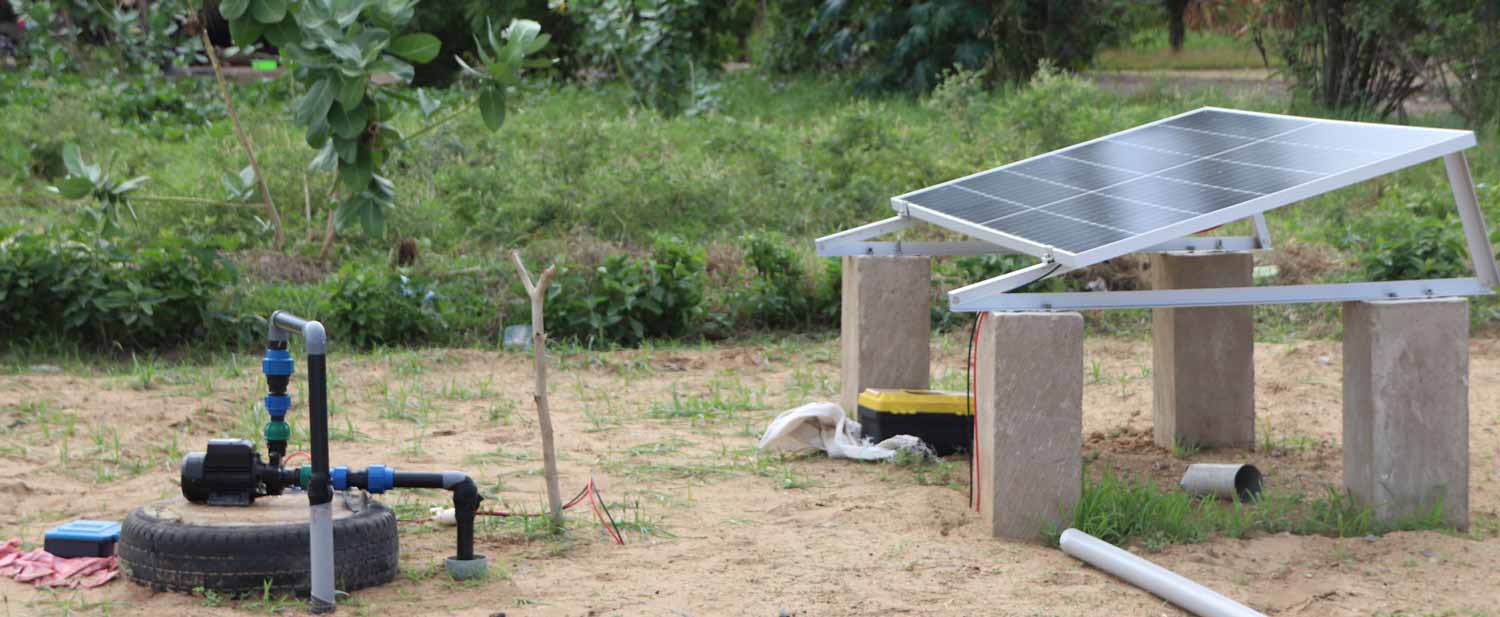Togo: Women now give birth under better conditions in many localities thanks to the African Development Fund and the European Union's support

A rural electrification support project financed by the African Development Bank Group has brought critical relief, including facilitating safe maternal delivery and care in the targeted Togolese communities.
The Project to Support the Social Component of the Rural Electrification Program, popularly called ‘CIZO,’ meaning ‘light up,’ has provided several health centers and local communities with renewable power and amenities such as solar water heaters and irrigation pumps. The Bank Group financed the project with a €444,038 loan and a €394,706 grant from the African Development Fund, the concessional lending window of the Bank Group. The European Union contributed EUR 9,999,000.
Overall, Togo’s CIZO project is building resilience in about 500 rural communities by improving household access to energy, building community infrastructure, and developing small-scale farms for the benefit of the people.
Beneficiary communities include Adjoguidi and Sewové in the southern Zio prefecture. Others are Nyékonakpoé, Legbassito, Kodjoviacopé, Bè, or Lilicopé, which are all equipped with solar water heaters.
During a recent site visit by the project team and Bank officials in Togo, led by Country Representative Wilfrid Abiola, they shared the joy of the medical staff and the beneficiary population, who, beaming with smiles, expressed their gratitude to the African Development Bank, the EU, and other development partners involved in making the project a reality.
“In the past, we used to mount a torchlight on our forehead to assist women who went into labor at night. Today, we have electricity at the health center, thanks to the CIZO project!” Rachelle Etonam Ayegbe, a midwife in Sewoyé, told the visiting officials.
Similar delight was expressed at health facilities, both by fresh mothers and professionals in other beneficiary communities.
“I was still wondering how to get hot water after childbirth. And now I am delighted to hear that hot water is available and free of charge. I couldn’t believe it,” declares an in-patient Sema Behezi.
Managers in the health facilities visited extolled the achievements of the project. They pointed out that the number of deliveries had doubled with increased admissions within the required 48 hours of hospitalization before delivery.
Under the project, submersible and surface solar pumps have been installed at 18 sites with a total area of 25.25 hectares in the Bè and Baguida localities of the Gulf prefecture, east of the capital Lomé. The project team met enthusiastic farmers at work, following the mechanization. "We now use motor pumps (...) thanks to the solar systems that have been installed. We are relieved," said Eliane Hoingbete, a market gardener.
In particular, the solar system allows market gardeners to scale their cultivation and increase their income through improved harvests. In Ablogamé, the population mainly grows lettuce, onion, carrots, and chili peppers, which they sell in the local markets.
